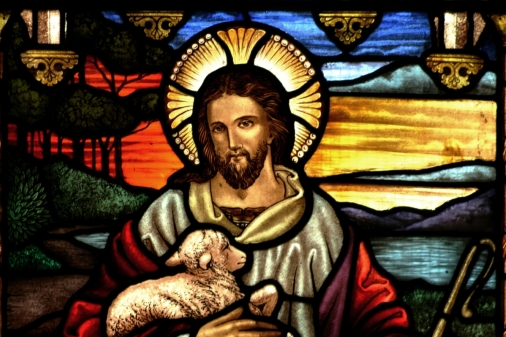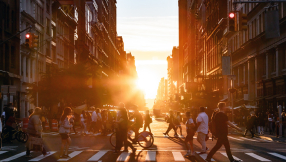
The Oxford Dictionary has named 'selfie' as its word of the year for 2013, an award given to a word or expression that has attracted a significant amount of interest in the past 12 months.
According to language research, use of 'selfie' has increased by a colossal 17,000% since last year, which marks a huge upward trend. Even prime ministers and presidents are at it, although the less said of that the better perhaps.
Most people won't need a team of language specialists to affirm the huge surge in the trend, however. One look at the average Facebook homepage or Twitter feed reveals that taking photos of ourselves has become increasingly popular, even inspiring offshoots including the 'helfie', a picture of one's hair and, perhaps more alarmingly, the 'belfie', a picture of one's posterior.
Kim Kardashian published a video last month in which she even offers tips on how to create "the perfect selfie", including good angles and flattering lighting. The reality TV star could be regarded as something of an expert as it comes from a wealth of personal experience - she regularly posts snapshots of herself on Twitter for her 18 million followers to enjoy. She's certainly not the only one, either. Many celebs including Justin Bieber, Lindsay Lohan and Lady Gaga are well known for their posing, and even Pope Francis recently got in on the action.
And it's doesn't stop at celebrities, it seems that many of us get a kick out of our online friends seeing a perfectly poised photo of ourselves - a manipulated image where anything that doesn't look quite right is literally blurred out. Bags under the eyes, wrinkles, an embarrassing pimple, less than flawless skin and dewy glows – no problem thanks to the array of easy to use photo editing apps available for us to choose from?
But most people will admit to taking several shots of themselves before selecting the 'most attractive' one that makes it onto their online profile (probably with a whimsical hashtag that suggests the camera sprang to life of its own accord and caught them off-guard, rather than admitting they spent the last forty minutes deliberating over which filter to use).
But where exactly does this obsession with taking photos of ourselves stem from?
It has been suggested that it is symptomatic of our self-obsessed society, the product of a culture that encourages a 'me, me, me' mentality and our increasingly insatiable vanity.
But it seems to me that the growth of the selfie probably arises from an increased sense of insecurity, rather than arrogance.
The expanding presence of Facebook, Twitter and Instagram in our everyday lives has blurred the line between reality and fantasy. We are never more than a couple of taps away from seeing what other people are getting up to, judging whether or not they are having more fun than us and engaging in a digital one-upmanship.
We are able to create a perfectly crafted persona online, which may or may not bear resemblance to our real-life selves. We adjust what we post to give the impression that we are constantly having the most glamorous and exciting time of our lives, while concealing the parts of life that don't quite fit in with our own fabricated version of ideal. The selfie is just the tip of the iceberg.
We can share a picture of a large bath, filled with luxurious bubbles and surrounded by candles, and no one ever need know that the water's lukewarm because the boiler's on the blink and the bath leaks so if anyone's in the kitchen they might get a bit damp.
This is both the magic - and insanity - of the internet. Our age is one of half-truths, carefully-edited photographs and broken people hiding behind a contrived digital mask.
In an article titled 'Instagram's envy effect', Relevant magazine explores the danger of foregoing authentic, intimate community in favour of that found in the public sphere of the internet. "Community happens when we hear each other's actual voices, when we enter one another's actual homes, with actual messes, around actual tables telling stories that ramble on beyond 140 pithy characters," writes Shauna Niequist.
We are losing that real community found when we gather in person with friends - real, honest conversations where we admit what's not going so well as well as celebrating what is, because we're too busy worrying about how many likes our profile picture is getting or why that girl we haven't spoken to since year 9 seems to be enjoying life way more than we are.
We find ourselves so consumed with crafting a post that lets other people know what a great time we're having, that we forget to actually enjoy the company and beauty that really is around us.
We let reality slip away while staring at a two inch screen.
It's time we started facing the problems we are creating for ourselves by succumbing to the lures of social media and the thrill of the selfie. The internet is an incredible resource, but it's all too easy to fall prey to obsession, which is when it becomes unhealthy.
Sometimes I wonder what Jesus would have done if he lived in an age of camera phones. Would he have tweeted photos of himself hanging out by the water's edge, having a few glasses of wine at the wedding at Cana, or standing next to that tree with the caption "I think someone's up there, LOL"? Somehow I can't imagine it, because he always favoured intimate relationship over self-promotion.
He withdrew from the crowds and spent time with God alone.
He told servants at the wedding to hide the fact that he had performed a miracle.
He invited Zacchaeus down from the tree and even had dinner with him, well aware that it would damage his own reputation.
You see, Jesus wasn't that concerned with holding up a reputation at all. In fact, he had a pretty bad image in the eyes of many people of his day. He was eventually killed because of it.
I get the impression that Jesus cared far more that the people he met felt loved and valued, than about crafting a shiny image of himself. And even though the Bible suggests he wasn't particularly good-looking, I'm not convinced he would have agonised over filters.
The Bible also describes Jesus as a man of sorrows who had nothing to attract us to him, and yet, attract us he does, two millennia after his thoroughly unglamorous, unenviable death on a cross.
My intention is not to criticise those who post photos of themselves because, I must admit, I am a recent convert to Snapchat, and I'm sure the hundreds of photos floating around cyberspace will one day come back to bite me in the belfie.
But I think it is important to consider the place of significance that we allow self-promotion to have in our lives, and the ramifications it's having on our ability to build effective community.
Jesus calls us to die to ourselves; perhaps it's time we die to our selfies too.













